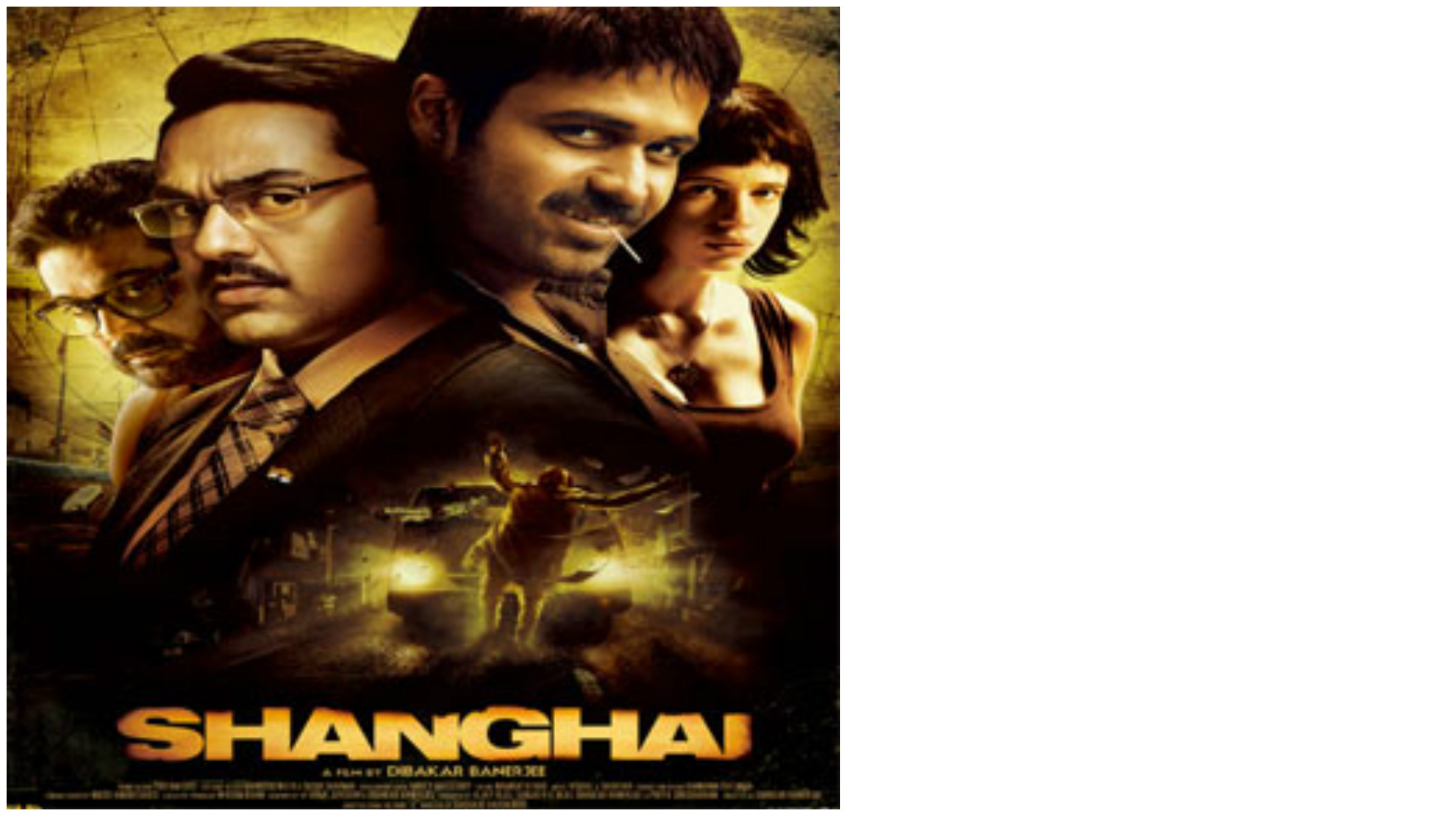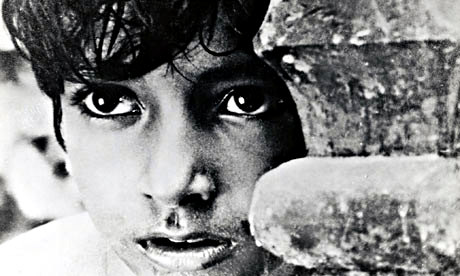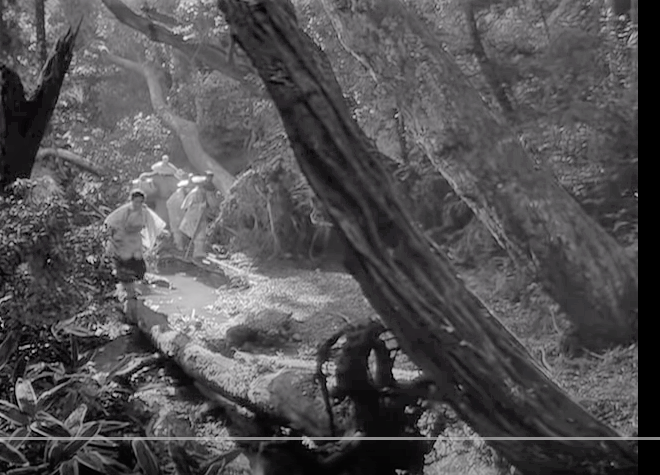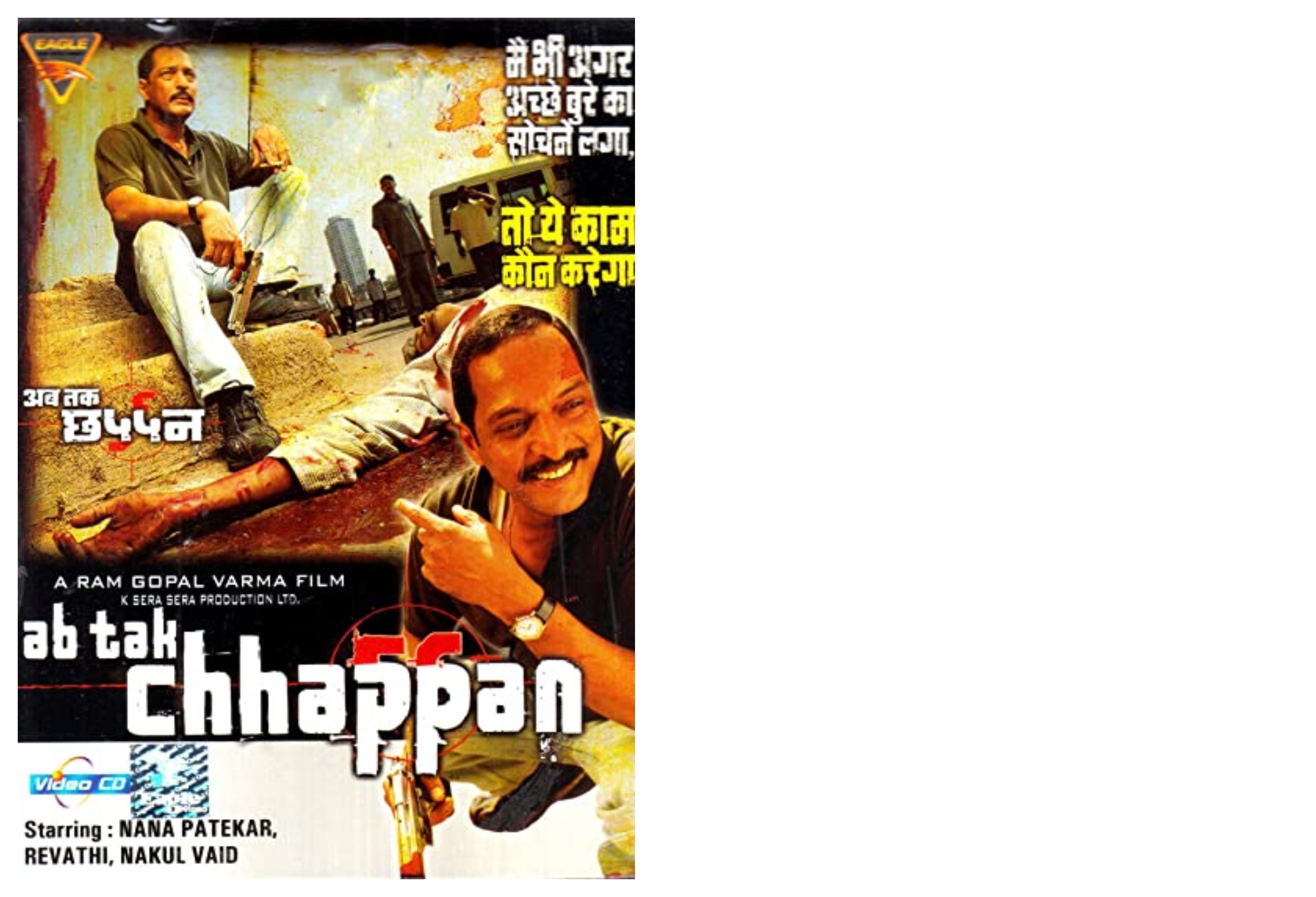Shanghai
Shanghai : Movie Review
4 stars out of 5 (Excellent)
Director : Dibakar Banerjee
Hindi (English subtitles available), 2012
Can the murder of an innocent man be excused if it will pave the way for a state’s economic boom? Is the relocation of thousands of people from their original domicile justified in the name of a state's progress? A theme can be transplanted onto a different time and place, but as long as the details of the new setting are accurately captured, the story’s throb and urgent relevance remain intact. "Shanghai" (2012) which applies this treatment with uncommon unremitting poise, is based on the Vasilis Vasilikov’s novel "Z" which inspired 1969’s famous French film of the same name. Acclaimed director Dibankar Banerjee has co-written the screenplay for this re-make with Urmi Juvekar. The pic, which revolves with artful sobriety around the afore-mentioned questions among others, is a rare Indian specimen. It eschews melodrama and retains its socio-political force; it breaks its cynical surface to be wildly hopeful and yet maintains the cold splash of reality.
As pic opens, a creature of the street is shown musing over his new knowledge that "mutton" means the same, whether spoken in Hindi or in English (an allusion perhaps to the newly acquired dual nationality of the "Z"s film scripts). Quickly tossing off any more mental exertion, he launches with gusto into political hooliganism. He is, as we eventually see, one of the many thugs that the politicos use for their means. Cut to the scenario where Shalini (Kalki Koechlin), a young woman, gets ready to receive Prof .Ahmedi (Prasenjit Chatterjee) who’s coming back from overseas. Right off the bat, he is shown to be a shrewd politician - wearing cooling glasses, he neatly cuts into the throng of journalists questioning a glamorous actress, bids good-bye to her while deftly deflecting some attention onto himself. Ahmedi had an affair with Shalini when she was his student in New York, and he is now in the city of Bharathnagar to organize a revolt against the proposed setting up of IBP (International business Park), a venture which will ostensibly give the region at least a small part of the economic heft of Shanghai.
This business master-plan, which has the special sanction of the Chief Minister (a portly lady enacted by Supriya Pathak - take your pick about real-life references), will involve rooting out a large chunk of the lower economic class from their homes to make way for the business zone. Prof Ahmedi is soon served a remainder of what can easily happen if you inconvenience Indian political bigshots.
Enter Mr.T.A Krishnan (Abhay Deol) an IAS officer who is designated by the CM to conduct an inquiry into the incident. Investigating with quiet perpicacity, he impartially questions the police and people pertinent to the case. He gets very close to his answer but flaming projectiles smashing past his home windows and face, mounting political pressure to "kill" the case’s true findings, and attractive prizes for toeing the official line, begin to weigh on his mind.
Shanghai, from its early stages, asserts its no-nonsense quality. Indian viewers who tolerate only expressly commercial fare will soon give up on this pic, whereas the patient and the politically inclined will find another valuable addition to desi political parables. Banerjee purposely opts more towards a measure of minimalism rather than robust drama, and this approach was also seen to an extent in his Khosla ka Ghosla where outright comedy is cut in favour of controlled amusement. Distractions are few here- there is an item song which is shown with all its glamorous trappings, but it shown to be transpiring on a stage meant to entertain the IBP-associated honchos.There’s another song which is mostly likely a commercial appeaser forced onto the narrative, but the adulteration ends there.
The personality of T.A Krishnan, the IAS officer played by Abhay Deol, is portrayed with blunt economy. Displaying the same focus which he must have employed in pursuing academics, he coolly studies his case with little indication shown of any extra-curricular embellishment. Details such as his tendency to remove his tie when working and wear it only for serious business interactions, and an amusing scene at dark dawn wherein he prays clad in a bath-towel with folded hands in front of agarbattis and a computer (in place of books) contribute towards a delineation of his habits. The fact that he also has potential to be an ethical elitist is revealed when he finally sees that he can no longer be an accessory to a deepening web of criminality, no matter what the rewards. Deol needs to be again congratulated, for choosing an excellent script. If he continues in this vein, he can consolidate his evolved status as an artist-star in the tradition of such stalwarts like George Clooney who habitually select high-quality cinema to act in.
The character of Jogi Parmar (Emraan Hashmi excellently portrays a ramshackle pornographer who gets involved in the case), despite his depraved profession, is made interesting with his amusing remarks and eventual sympathetic shades. Ahmedi’s (Prasenjit Chatterjee) visage carries a faint smile as if he were perpetually cognizant of the circus of life in his native country, and his chops, both as a bold lover and a successful mass-leader, are effectively conveyed despite his limited time on-screen.
Shalini’s facial expression, which is always grave aggrieved glassy-eyed and perpetually zonked out, verges on the ridiculous and her character reaches its nadir during a hysterical outburst of physical violence. Her act or rather the lack of it is a serious mis-step by the director, who otherwise orchestrates a fine cast. The other gripe I have with this film's direction, is about the depiction of a CPR procedure in the hospital. Since Banerjee has shown so much attention to detail in Shanghai, why does he do no medical research and end up showing cardiac compression as gentle thoracic massage, just like how "Rajneeti" erred? The actual procedure is a semi-violent potentially rib-cracking exercise at 100 compressions per minute, often misperformed in real life and almost never correctly shown in films.
On the positive side, the lighting is purposely rough-shod and largely natural. Background music, while discreetly including ambient noise, reduces the instrumentation to a minimum.
"Little" details dot the film, building up the larger milieu. Jogi flippantly remarks to Krishnan while they are in the urinal, that European-looking foreigners like Shalini do not bathe daily. His statement of nationalistic pride however is undermined in the next scene where an aide pours water from a mineral-water bottle to wash Krishnan's hands at a basin because the tap doesn't work. The IAS officer watches wryly when a dusty room is opened and cleaned to function as the "enquiry" office. A freshly washed floor outside this office makes two people lose balance one after the other, thanks to the absence of "wet-floor" signs while also serving as a prescience of bigger slips later awaiting this investigating commission. Two servers are shown colliding into each other while serving the principal secretary to the CM - this was likely a real-life accident but Banerjee does not re-shoot the scene. A man from whom Shalini wants an incriminating video, seriously asks her in English 'You are who to the accidented person?' (sic) while Jogi sitting by her side solicitously enquires - "You would like Dimsum, lemon soda..?!"
Costas-Gavras’ "Z" which was not all that great in the first place, might have been released in more politically charged times but Banerjee’s sanguine depiction of his film’s contemporary Indian milieu has a vibrant authenticity to it that is relevant no matter how many other similarly-themed films we have seen. Banerjee, as noted in the past, is an optimist and that is why he injects the penultimate part of this largely stolid narrative with a last-minute recklessly altruistic stunt by a character, as if to display that he believes in gunning for redemption no matter how doomed or ridiculous it appears.
The pic’s very end however, which is profoundly and stylishly artistic in irony and metaphor, re-cements his concurrent seemingly paradoxical credentials as a realist.
Prior to watching the film, I first read the "Shanghai" reviews of my two favourite Indian film critics - Khalid Mohamed and Bharadwaj Rangan, but I wasn’t entirely convinced that Shanghai missed its mark. Then I read the opinion of Madhureeta Mukherjee (whom I mostly ignore) and got more interested in watching this movie, and the deal was sealed on reading what Anupama Chopra (with whom, however, I mostly disagree and despise) had to say. This of course is not in any way a reflection of these critics’ relative merits. Moral of the story - Always keep a lot of critics on your radar.
UPN
UPNWORLD welcomes your comments.










0 COMMENTS
WRITE COMMENT